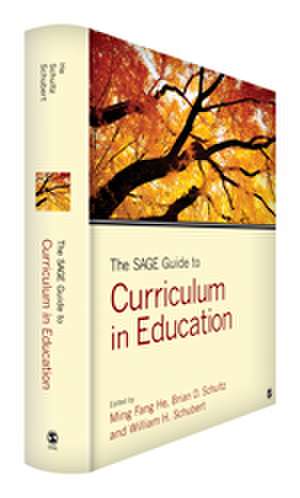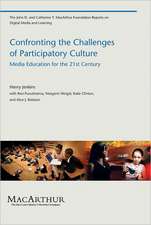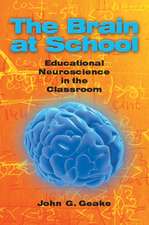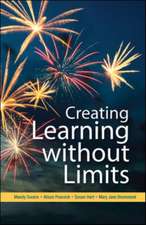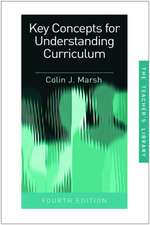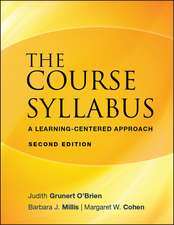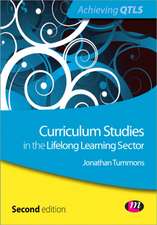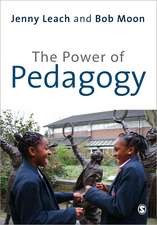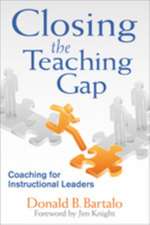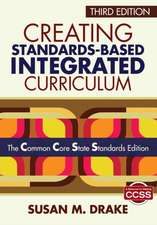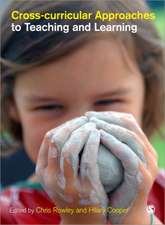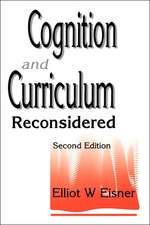The SAGE Guide to Curriculum in Education
Editat de Ming Fang He, Brian D. Schultz, William H. Schuberten Limba Engleză Hardback – sep 2015
Key Features:
Each chapter inspires readers to understand why the particular topic is a cutting edge curriculum topic; what are the pressing issues and contemporary concerns about the topic; what historical, social, political, economic, geographical, cultural, linguistic, ecological, etc. contexts surrounding the topic area; how the topic, relevant practical and policy ramifications, and contextual embodiment can be understood by theoretical perspectives; and how forms of inquiry and modes of representation or expression in the topic area are crucial to develop understanding for and make impact on practice, policy, context, and theory.
Further readings and resources are provided for readers to explore topics in more details.
Preț: 1274.51 lei
Preț vechi: 1400.56 lei
-9% Nou
Puncte Express: 1912
Preț estimativ în valută:
243.89€ • 260.79$ • 203.34£
243.89€ • 260.79$ • 203.34£
Carte tipărită la comandă
Livrare economică 18 aprilie-02 mai
Preluare comenzi: 021 569.72.76
Specificații
ISBN-13: 9781452292243
ISBN-10: 1452292248
Pagini: 552
Dimensiuni: 216 x 279 x 272 mm
Greutate: 10.82 kg
Ediția:1
Editura: SAGE Publications
Colecția Sage Publications, Inc
Locul publicării:Thousand Oaks, United States
ISBN-10: 1452292248
Pagini: 552
Dimensiuni: 216 x 279 x 272 mm
Greutate: 10.82 kg
Ediția:1
Editura: SAGE Publications
Colecția Sage Publications, Inc
Locul publicării:Thousand Oaks, United States
Recenzii
"The SAGE Guide to Curriculum in Education is an excellent choice for a solid introduction to Schwab and ensuing works that demonstrate the practical approach to commonplace curriculum. This volume will be useful to undergraduate and graduate students as well as professors teaching curriculum studies. Educational leaders, workers, policy-makers, and designers of curriculum will find this to be a constructive tool, also. Highly recommended."
Descriere
The SAGE Guide to Curriculum in Education illuminates how four commonplaces of curriculum--subject matter, teachers, learners, and milieu--are interdependent and interconnected in curriculum making and the ties between and controversies over public debate, policy making, university scholarship, and school practice in defining and developing curricula.
